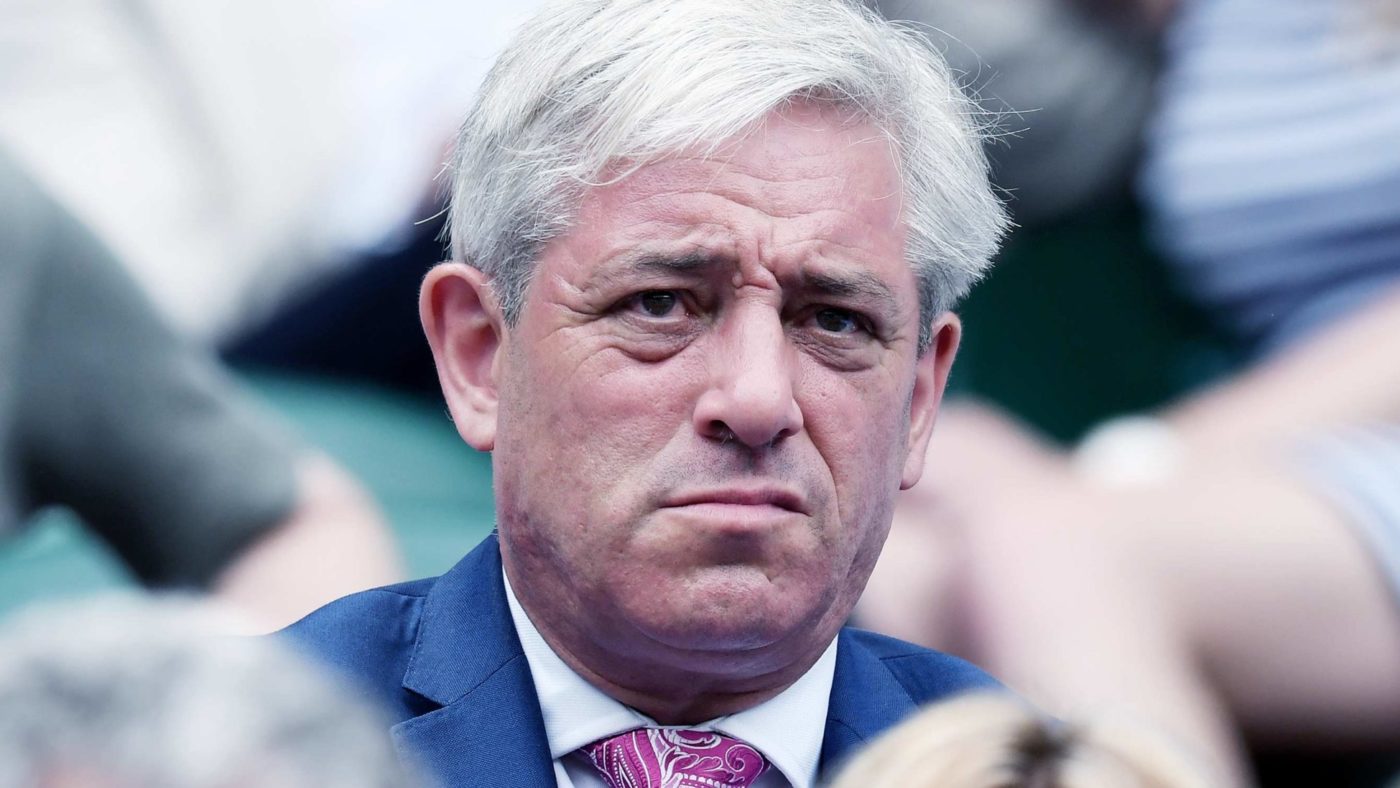John Bercow will no doubt have smiled to himself when he saw this morning’s newspapers. Some frontpages are really rather rude about the Speaker of the House of Commons. “B*ll*cks to Bercow” says the Sun. The adamantly pro-Brexit Express labels him “The Brexit Destroyer”. But that won’t phase him, for Bercow is exactly where he wants to be: at the heart of the story.
Yesterday, he provided us with the latest twist in the Brexit saga, citing precedent dating back as far as 1604 to upset the Government’s plan to put its deal to another meaningful vote in the House of Commons this week.
“If the government wishes to bring forward a new proposition that is neither the same, nor substantially the same as that disposed of by the house on March 12, this would be entirely in order. What the government cannot legitimately do is to resubmit the same proposition, or substantially the same proposition as that of last week which was rejected by 149 votes,” he declared in a statement to the Commons dripping with the mix of pomposity and self-importance that is Bercow’s default setting.
The statement certainly provoked plenty of sound and fury, but how much has the Speaker’s intervention really changed?
I would tentatively suggest that the answer to that question is: not as much as most people seem to think.
The cancellation of this week’s third meaningful vote ultimately only matters if there was a reasonable chance of the Government winning that vote. Before Bercow’s statement on Monday afternoon, there was scant evidence to suggest that was the case. There was news of a handful of changes of heart on the Conservative backbenches, but no movement from the all-important DUP. And there was even a suggestion that the Government was considering pulling the vote to avoid the humiliation of another defeat.
The point at which to blame Bercow for obstructing our progress towards the EU’s exit door is therefore when there is something approaching a majority for the government’s deal but he is denying the Commons a say.
As Sir Stephen Laws QC, former First Parliamentary Counsel and Senior Fellow at Policy Exchange, has pointed out, “If there is a majority for the deal, preventing the vote would be to frustrate the will of the House. It would be deeply concerning to see a Speaker act in such a way.”
Were such a scenario to arise, the Commons could side step the Speaker’s ruling really rather easily. All it needs to do is pass a motion that overrules him. And if something close to a majority for a deal exists, such a motion would surely receive a thumbs up from the Commons. After all, it is very likely that a healthy number of opponents to the deal would object to blocking it in such a backhanded manner and vote with the Government.
Another option for the Government would be to just introduce the legislation that gives effect to the Withdrawal Agreement.
Either way, it is hard to imagine a scenario in which a majority for May’s deal exists in the Commons but MPs are denied an opportunity to express their view. There is very little that can stop the something that has the support of a majority in the House of Commons. And it is a lack of a majority for very much at all – not unhelpful rulings from the Speaker’s Chair – that explains the quagmire Britain’s political class finds itself in.
Of course, Bercow matters. He occupies a powerful place at the heart of the British constitution which offers him substantial discretionary power. And, as we have seen in his selective application of precedent and the amendments he chooses to accept any Brexit business, he will use that discretionary power to make life difficult for a government trying to put the will of the people into effect.
In my weekly CapX briefing on Saturday, I wrote of the frustrating way in which so many in Parliament want to talk about anything other than the central Brexit trilemma they face: leaving with a deal, leaving without a deal or not leaving at all. Monday’s procedural shenanigans provided the procrastinators with yet another distraction.
For the avoidance of doubt, none of this should be read as remotely supportive of the preening Bercow. On Brexit he has been shamelessly partial. He is irredeemably sullied by a bullying scandal he has done everything in his power to bury. His departure from the position of power he has abused in recent years cannot come soon enough.
But don’t let John Bercow’s obvious and undoubted shortcomings distract from the real reasons we are stuck in Brexit limbo.
CapX depends on the generosity of its readers. If you value what we do, please consider making a donation.


